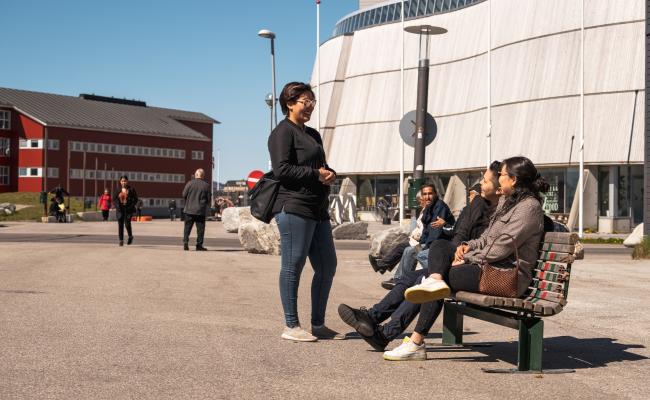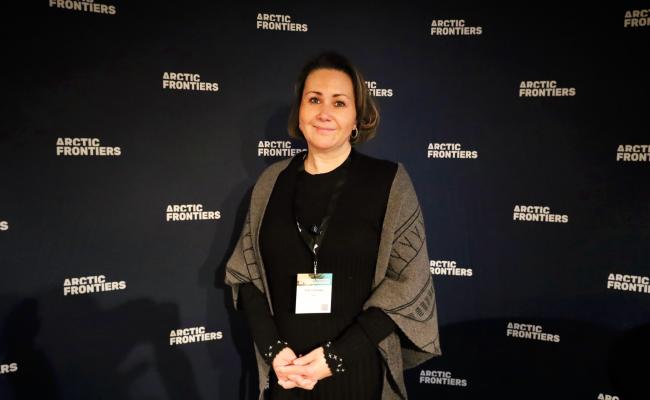Denmark’s PM Stands Up to Trump’s USA and for Arctic Security
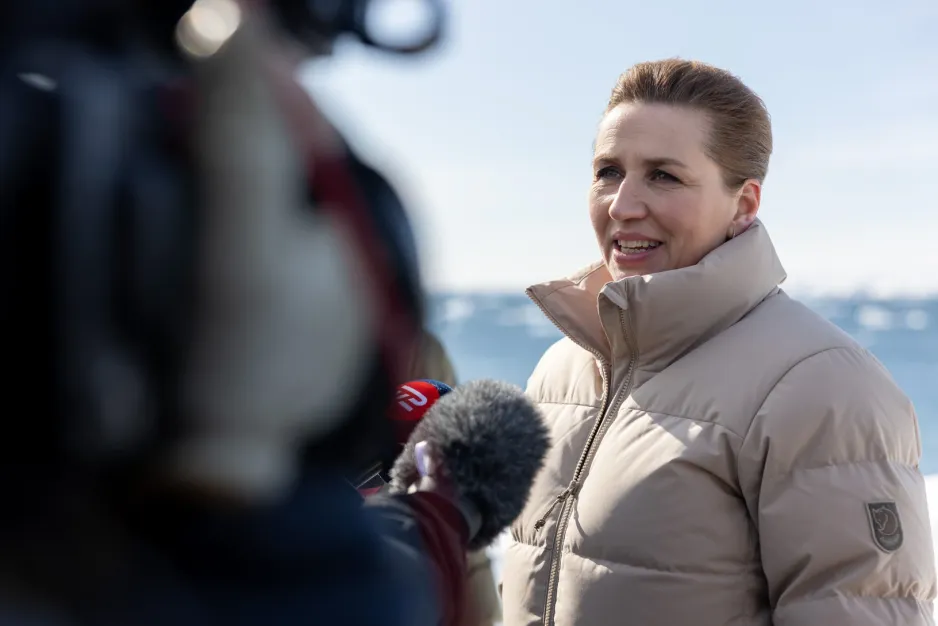
Denmark’s Prime Minister Mette Frederiksen (S) visited Greenland last week to strengthen Danish-Greenlandic cooperation in stormy times. Greenland is an Arctic island and a self-governed country within the sovereign state of the Kingdom of Denmark. While in Nuuk, she took the opportunity to send a message directly to the United States. (Photo: Emil Stach/the Danish Prime Minister's Office)
"When you demand to take over a part of the Kingdom of Denmark’s territory. When we are met by pressure and threats from our closest ally. What are we to believe about the country we have admired for so many years?" the Danish PM Mette Frederiksen, recently visiting Greenland, pointed out to the US Trump administration.
Last week, Denmark's Prime Minister Mette Frederiksen visited Greenland to strengthen unity between Copenhagen and Nuuk in the face of heavy pressure from Washington D.C.
"Deer Greenlanders, dear Danes. We are in an unreal situation. We will be challenged, and we will be tested. We have been burdened with standing up for the community we have had for centuries, for better or worse," she wrote on Facebook on Friday afternoon.
US President Donald Trump continues to repeat the idea of US control over Greenland with dubious references to national and international security, as well as expressing a strong belief that dominion over the island will be realized through annexation.
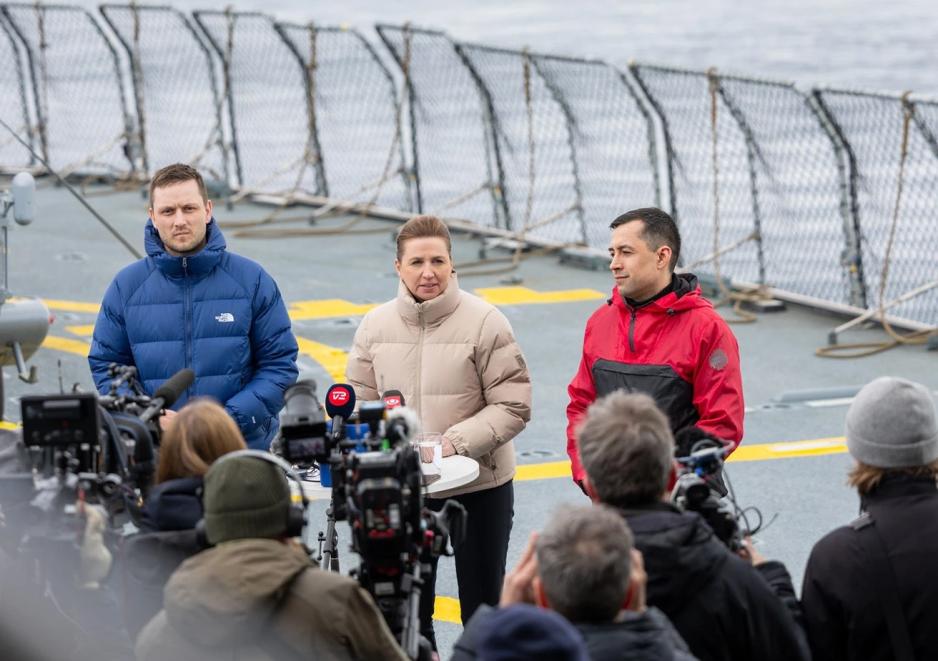
United front: Mette Frederiksen in Nuuk, flanked by (to the left) Jens-Frederik Nielsen (D), the new PM of Greenland's government Naalakkersuisut and the former PM Múte B. Egede (IA). The photo was taken last week. The new Greenlandic coalition government, consisting of Demokraatit, Inuit Ataqatigiit, Siumut, and Atassut, took office on Monday. (Photo: Emil Stach/the Danish Prime Minister's Office)
Also read (the article continues below)
Accusation and response
The US president recently sent a high-ranking delegation to Greenland overseen by Vice President J.D. Vance (R).
This controversial visit specifically took place at the US Pituffik Space Base (formerly known as Thule Air Base) on the northwestern coast of Greenland. The VP was accompanied by Second Lady Usha Vance, US National Security Advisor Mike Waltz and Energy Secretary Chris Wright (R).
"Denmark has not kept pace and devoted the resources necessary to keep this base, to keep our troops, and in my view, to keep the people of Greenland safe from a lot of very aggressive incursions from Russia, from China, and other nations," Vance said without substantiating his claims, Reuters reported.
On Thursday evening, Frederiksen (present in Greenland) responded directly to the criticism in a longer Facebook post. She also remined of key aspects in Denmark-US relations as well as of fundamental international law.
Contrasts
"The US is a big country. Denmark is a small one. We have looked up to you. Because – since the Second World War – you have defended the free world. Created prosperity and progress. Peace and freedom," the Danish PM pointed out and continued:
"We have tried to give back to you. By always supporting you. And by showing up every time you called. In us, you have a friend that has always kept our word."
"There is nothing I want more than for our friendship to continue. Because, if we let ourselves be divided as allies, we do our foes a favour. I will do everything that I can to prevent that from happening."
Frederiksen then focused on two key points vis-à-vis the Trump administration:
"When you ask us to spend more on our defense, we do. And when you ask of us to strengthen security in the Arctic, you're pushing against an open door."
"But when you demand to take over a part of the Kingdom of Denmark’s territory. When we are met by pressure and by threats from our closest ally. What are we to believe about the country that we have admired for so many years?"
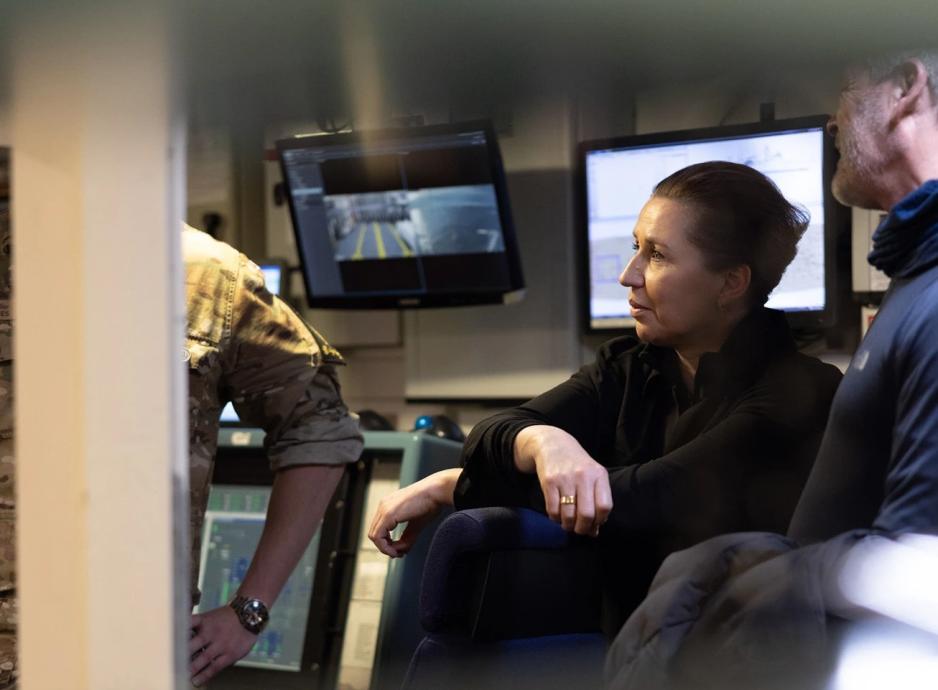
Mette Frederiksen aboard a Danish naval vessel docked in Nuuk. Her government recently lauched a new plan to strengthen the Danish Navy, including in the Arctic and the North Atlantic. The Joint Arctic Command of the Danish Defense protects the sovereignty of the Kingdom of Denmark in and around Greenland and the Faroe Islands. (Photo: Emil Stach/the Danish Prime Minister's Office)
Formed so that small countries don’t have to fear big ones.
Basic Principles
Furthermore, Frederiksen mobilized counterforce towards the White House:
"You know us. You know what we stand for. You know we don’t give in," she states and refers to what is anchored in the UN Charter of 1945:
"That is why I have to say very clearly: National borders. Sovereignty of states. Territorial integrity. These are all principles rooted in international law. These are fundamental principles. Formed after the Second World War so that small countries don’t have to fear big ones."
"Therefore, this is not only about Greenland or Denmark. This is about the world order that we have built together – across the Atlantic – over generations."
"You cannot annex another country. Not even with an argument about international security," the Danish PM insisted.
They amount to a violation of international law.
Speaking plainly to Rubio
The Danish Minister of Foreign Affairs Lars Løkke Rasmussen (M) also reminded of international law in a meeting with his American colleague during the meeting of NATO Ministers of Foreign Affairs in Brussels last week:
It has always been a common task to safeguard security in the Arctic.
Own efforts and burden-sharing
When it comes to securing the Arctic and Greenland, PM Frederiksen pointed both to new Danish initiatives – and to burden-sharing in light of the 1951 agreement between the US and the Kingdom of Denmark on the defense of Greenland.
Central to this agreement, which is still in force, is that the US, under the auspices of NATO, shall assist Denmark in the defense of Greenland, according to Denmark’s National Encyclopedia.
"On security: Then there is a lot that we – and you – can do. Denmark is now strengthening its own presence. More surveillance. New Arctic ships. Long-range drones. And satellite capacity. We uphold our commitments. And more is on the way."
"It has always been a common task to safeguard security in the Arctic. Greenland is a part of NATO. And for 75 years, we have had a defense agreement with you that gives you very wide access to Greenland."
"If you would like to be more present in Greenland, Greenland and Denmark are ready. And if you would like to strengthen the security in the Arctic – just like us – then let us do so together. Let’s just do it."
Examples of new Danish defense measures relevant to the Arctic
· On January 27th, a new partial agreement under the Danish defense settlement was launched, focusing on the defense of the Arctic and the North Atlantic. The agreement includes measures of over DKK 14 billion for i.a. three new Arctic ships, extra long-range drones, and strengthened satellite capacity. It was informed that a second partial agreement will be negotiated for the Arctic in 2025.
· On March 25th, the Danish Ministry of Defense announced the speeding-up of various defense initiatives through an acceleration fund. This includes investment in capacity for aerial refueling, a prerequisite for fighter jet operations in the Arctic and the North Atlantic.
· On March 30th, the Danish government launched a new fleet plan. This plan suggests rapidly acquiring new equipment for the surveillance of critical subsea infrastructure, 21 new vessels for the Danish Navy Home Guard, and four new ocean vessels, as well as implementing a development program for drones and other autonomous units for surveillance on and under the ocean surface.
· The fleet plan also includes a long-term path to facilitate possible acquisitions of new frigates and ships for the Arctic and the North Atlantic. It will also be analyzed whether Denmark should enter into cooperation with other countries regarding icebreaker capacity.
· The Frederiksen government presented its first proposal for the now ongoing defense settlement in May 2023. The proposal called for investments of DKK 143 billion with a focus on defense in the Arctic and the Baltic Sea. Prior to this, Denmark received criticism from NATO for delays and lack of investment in military capabilities in different domains.




